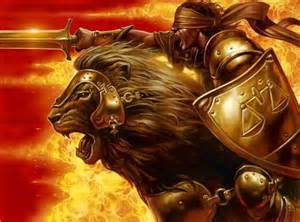Does God decide our destiny or do we?
IT’S WORTH CONSIDERING
One of the biggest religious controversies deals with the issue of “predestination” and what it really means. Does God select His “elect” beforehand, or do people’s decisions determine their eternal destiny? Who decides? As with many other issues, I’m beginning to see this from a new perspective. I’m finding many holes in what I have been taught. I’m not asking you to agree with my conclusions, but to give some thought to what I’m presenting here. I am learning to go deeper and I’d like you to join me on my journey. To help you determine which camp you are in, I’d like to take a look at a key verse and the two controversial words it contains:
what it really means. Does God select His “elect” beforehand, or do people’s decisions determine their eternal destiny? Who decides? As with many other issues, I’m beginning to see this from a new perspective. I’m finding many holes in what I have been taught. I’m not asking you to agree with my conclusions, but to give some thought to what I’m presenting here. I am learning to go deeper and I’d like you to join me on my journey. To help you determine which camp you are in, I’d like to take a look at a key verse and the two controversial words it contains:
For those whom He foreknew, He also predestined to become conformed to the image of His Son, so that He would be the firstborn among many brethren (Romans 8:29)…
A clear understanding of the meaning of foreknew and predestined will get us headed in the right direction. The first focuses on knowing, the second on deciding. The Greek word for “forknew” is proginosko. It is used only 5 times in the New Testament, and in each case it refers to people, not facts or things. Since it begins with “pro,” (=before) the meaning is “knowing people beforehand.” The verb literally means “to know in advance,” and in the New Testament the word is used in connection to God’s foreknowledge regarding the election of his people (Rom. 8:29; 11:2) or of Christ (1 Pet. 1:20), or to the advance knowledge that believers have by prophecy (2 Pet. 3:17). Acts 26:5 gives it a slightly different twist, referring to “knowing before the time of speaking,” but even here it is referring to people (those in the preceding verse).
in the right direction. The first focuses on knowing, the second on deciding. The Greek word for “forknew” is proginosko. It is used only 5 times in the New Testament, and in each case it refers to people, not facts or things. Since it begins with “pro,” (=before) the meaning is “knowing people beforehand.” The verb literally means “to know in advance,” and in the New Testament the word is used in connection to God’s foreknowledge regarding the election of his people (Rom. 8:29; 11:2) or of Christ (1 Pet. 1:20), or to the advance knowledge that believers have by prophecy (2 Pet. 3:17). Acts 26:5 gives it a slightly different twist, referring to “knowing before the time of speaking,” but even here it is referring to people (those in the preceding verse).
The second key word is predestined. The Greek word is proorizo means to predetermine or foreordain. It literally means “to set a boundary or a limit.” When used of people, it means “to put limitations upon that person,” thus, “to determine his destiny.” Since pro means before, the definition is: “to determine one’s destiny beforehand.” It is found in 6 passages (Acts 4:28 Rom 8:29, 30; 1Cor. 2:7; Eph 1:5,11) and in every instance it refers to God’s plan or purpose of salvation. They teach that the eternal, sovereign, immutable, and unconditional decree or “determinate purpose” of God governs all events.
AS I SEE IT
Taking these two words at face value in light of their definitions, they say that even before time began, God knew those who were His because He had already made that decision. He had set limits on all His creation. We in America have a real problem with this. Because this whole idea seems so unfair, we have gone to great lengths to make these words say something contrary to their biblical meaning. We feel justified in claiming that it’s not fair for God to doom someone to hell. A good God wouldn’t do that because it’s just not fair.
I was surprised to learn that the whole concept of fairness is found nowhere in the Bible. There isn’t a word in Hebrew for “fair,” and in the Greek, the word always means mild, pretty, or kind as in fair maiden, fair weather, fair land, or fair name. It never means fair the way we in America us it. We have taken the concept of “fair ball” in baseball and applied it to life. We have set our own rules and have determined that acceptable behavior must fall within our limits of fairness. Otherwise, we have the right to complain. We’re big on our perceived “rights.” For some reason, we feel “entitled” to a quite lengthy list of things.
It began with our founding fathers as they agreed on the final wording in the Declaration of Independence. While much of our government had its roots in the Bible, the phrase “unalienable rights” did not. It was a product of the “Great Enlightenment” which gave man far more “eminence” than he deserved. The Bible tells us that as Christians, we have given up all our supposed rights, having been purchased by God at the price of His Son. We are eternally dependent on His mercy and must submit to His will for us. As our sovereign God, He can do as He pleases. Our idea of “fairness” and the sovereignty of God are incompatible.
Our view of fairness has led us to the conclusion that it is unfair for God to determine our destinies. So to “protect” God from possibly being unfair, we have decided that His decisions are not absolute and sovereign, but instead are based on His knowledge (even before we were born) of what we will decide. Consequently, God doesn’t determine our fate; he simply reacts to our decisions.
The problem with this is that it diminishes God’s sovereignty if he decides based on what we do. It makes God less God. The Old Testament clearly reveals God as a sovereign king with the right to decide as he chooses. (Check out John 12:39-40). Fairness was never an issue. Other cultures have no trouble with this concept. Kings and dictators do as they please. They have the “right” to do so. As one Bible commentator put it, “Seeing God as a ‘reactor to our decisions’ results from trying to read ill-conceived perceptions derived from the New Testament into the interpretation of the Old Testament.”
…(Isaiah 45:9).
Or does not the potter have a right over the clay, to make from the same lump one vessel for honorable use, and another for common use? What if God, although willing to demonstrate His wrath and to make His power known, endured with much patience vessels of wrath prepared for destruction? And He did so in order that He might make known the riches of His glory upon vessels of mercy, which He prepared beforehand for glory… (Romans 9:21-23).
No one can come to Me [Jesus] unless the Father who sent Me draws him…
(John 6:44). (God takes the initiative.)
So, who decides the fate of people? We have three options:
1. God decides.
2. Man decides.
3. No one decides, because all is random.
We have just learned that, according to the Bible, God decides. The Bible also tells us that we have been given a free will and are responsible for the choices we make. We will reap what we sow. Paul states in Romans 10:13 that whoever will call on the name of the Lord will be saved. Somehow, both options 1 and 2 are true. It’s like standing on a railroad track. Where we are, both rails are parallel, different, but heading in the same direction. In the distance, however, they merge into one. So, good luck deciding on a camp. What we can learn is that
that we have been given a free will and are responsible for the choices we make. We will reap what we sow. Paul states in Romans 10:13 that whoever will call on the name of the Lord will be saved. Somehow, both options 1 and 2 are true. It’s like standing on a railroad track. Where we are, both rails are parallel, different, but heading in the same direction. In the distance, however, they merge into one. So, good luck deciding on a camp. What we can learn is that
1. God is sovereign, and before there was history, there was predestination.
2. Everything that has and will happen is written in the Book of Truth (a heavenly record of all the events that will occur in the “kingdoms of men.”)
3. God is not fair; He is just. With the elect He is merciful and we should pass that mercy on to everyone we meet.
ON THE LIGHTER SIDE
How is it that one careless match can start a forest fire, but it takes a whole box to start a campfire?





Leave A Comment